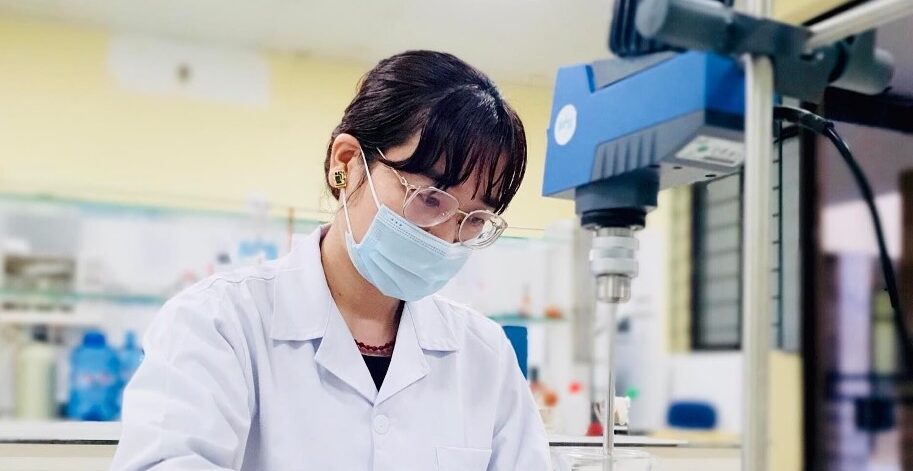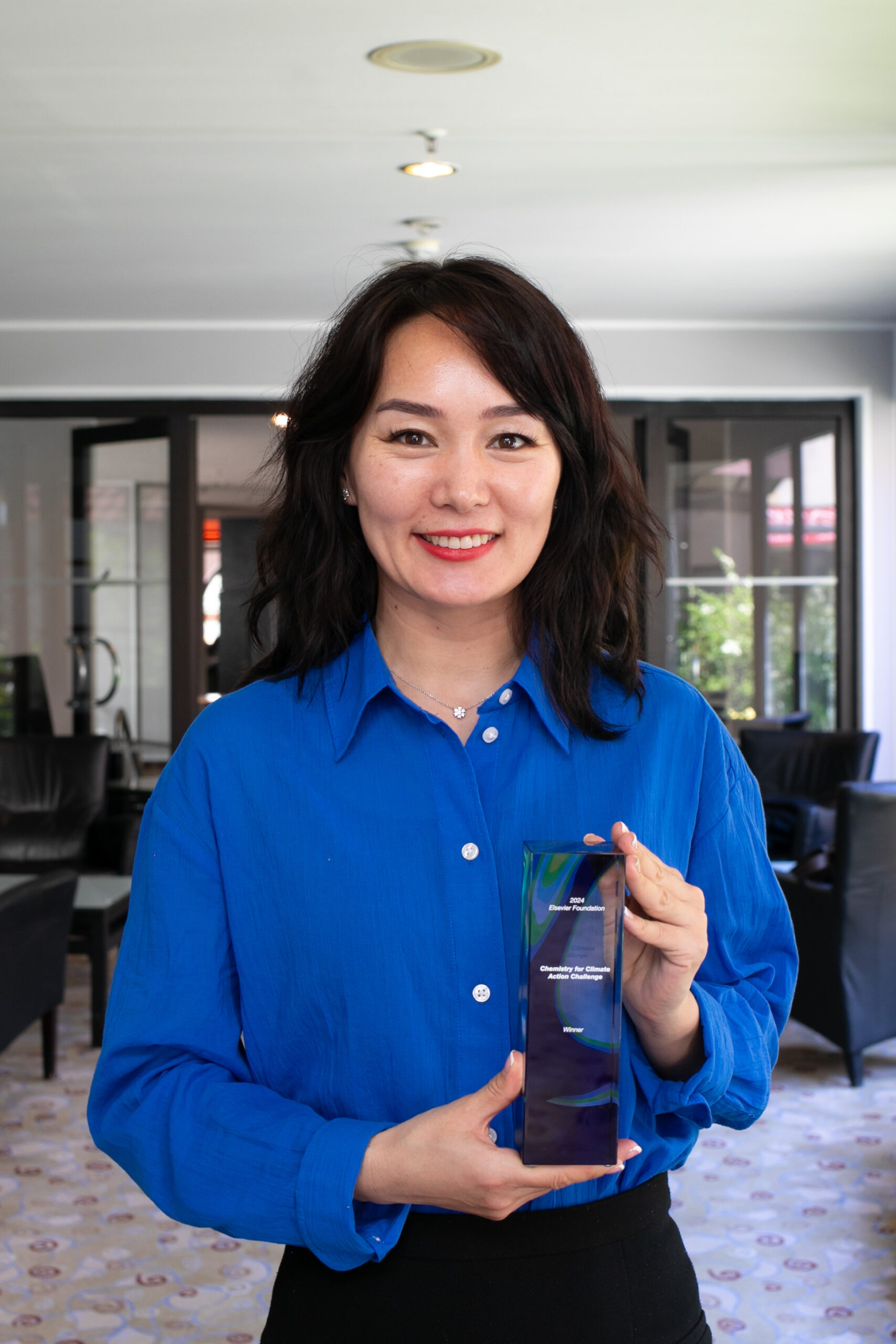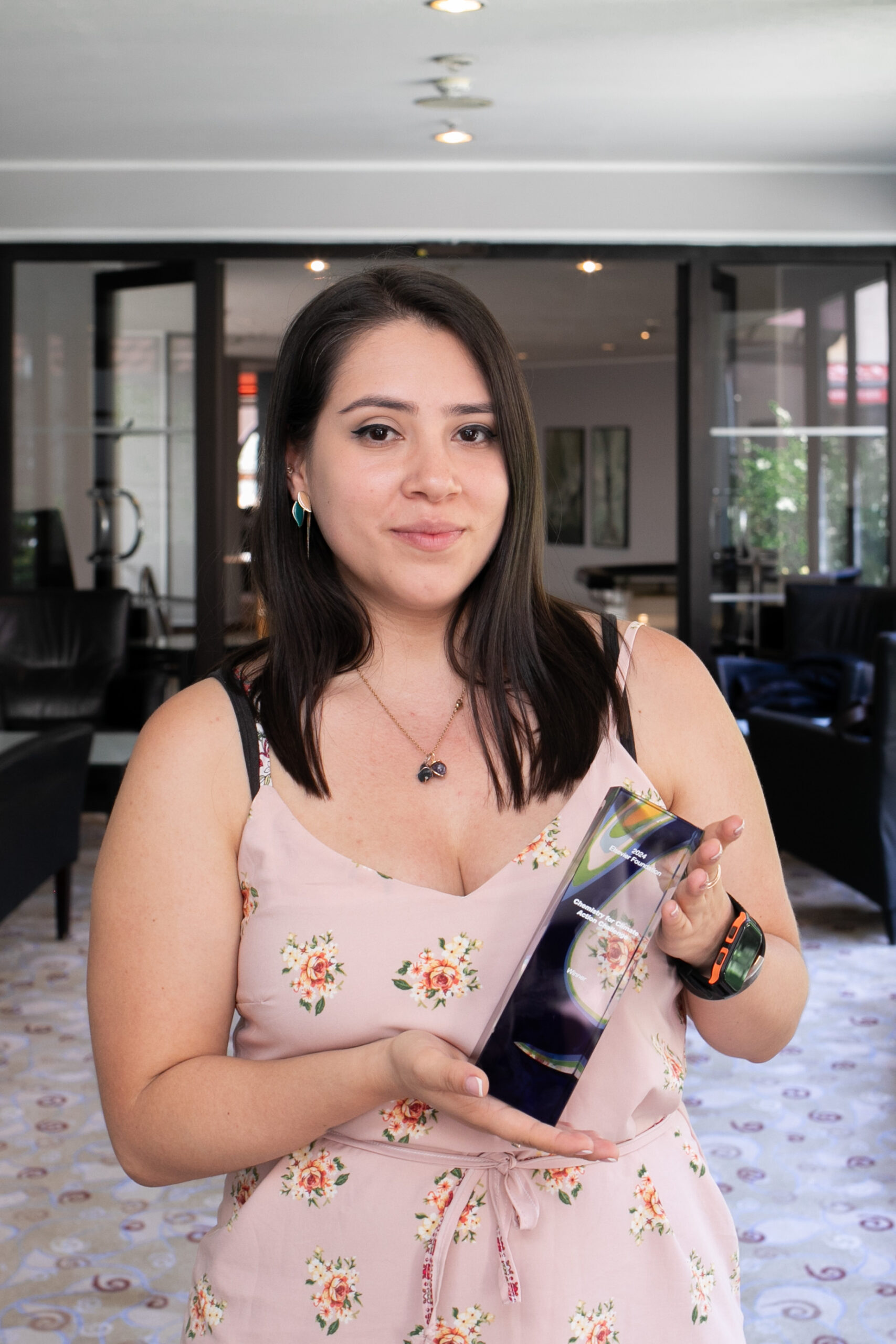The Chemistry for Climate Action Challenge is one of the Elsevier Foundation’s flagship partnerships. Together with Elsevier’s Chemistry journals, the Elsevier Foundation provides funding of 25,000 USD for 2 winning projects per year, implementing green & sustainable chemistry solutions in the Global South – advancing both Climate Action (SDG 13) and Gender Equity (SDG 5).
🏆 Meet the Winners
Our winners are working on projects ranging from natural biopesticide in Malaysia to ecorestoration in Nigeria, from natural preservatives in Nepal to butterfly attractant in India and wastewater treatments in Jordan.
View All Winners
More information on the Challenge

-
Before submitting your proposal, make sure to read the full description of the Challenge and the criteria with which the proposals will be evaluated.
The Elsevier Foundation Chemistry for Climate Action Challenge is jointly run by the Elsevier Foundation and Elsevier’s Sustainable Chemistry journals team. The Challenge is open to individuals and organizations whose projects use green and sustainable chemistry solutions to tackle some of the developing world’s greatest sustainability challenges.
The winning projects will receive a prize of $25,000 each. The winners will be announced at the 10th Elsevier Green & Sustainable Chemistry Conference (18-20 May, 2026) in Dresden, Germany.
Application process and Frequently Asked Questions

-
1. How do I submit my proposal?
You can submit your proposal on the Elsevier Foundation Chemistry for Climate Action Challenge platform at this link: https://app.oxfordabstracts.com/stages/79044/submitter
For a successful proposal, it is essential to familiarize yourself with the full description of the Challenge and the criteria.
-
2. What is in scope and what is out of scope for the Challenge?
In-scope: scale-ups of early-stage projects where the prize represents most of the overall needed budget; innovative green & sustainable chemistry solutions implemented in the global South. For example, projects looking at Sustainable Chemistry Solutions: Waste Utilization; Alternative Energy Sources; Biodiversity and Ecosystem Health; Climate Change Mitigation; Community Empowerment; Sustainable Agriculture; Water Resource Management; Health and Well-being.
Out-of-scope: projects to be implemented outside of low-and-middle income countries; projects with no gender component, educational projects without a strong scientific green & sustainable chemistry component; prize money mainly used on expensive equipment; prize money mainly used on personnel; projects in the Global South without a local implementation partner.
-
3. What are the Challenge’s process and deadlines?
The Elsevier Foundation Chemistry for Climate Action Challenge is articulated in the following phases:
- Submission phase: Proposals can be submitted during the general submission period from July 7, 2025, to October 1, 2025.
- Reviewing phase: A panel of expert reviewers will evaluate all submissions and select a shortlist of proposals to advance to the judging phase. The shortlist will be announced by October 30, 2025.
- Judging phase: Our scientific jury will thoroughly assess the shortlisted proposals to identify the Top 5 finalists. The finalist proposals will be announced on our website on January 15, 2026.
- Final presentation: The Top 5 finalists will be invited to present their proposals at the 10th Elsevier Green & Sustainable Chemistry Conference (18-20 May 2026, Dresden, Germany) to compete for the two Challenge prizes. The winners will be announced at the end of the conference.
-
4. What are the prizes of the Elsevier Foundation Chemistry for Climate Action Challenge?
The Elsevier Foundation Chemistry for Climate Action Challenge awards 2 prizes of 25,000 dollars (USD) each.
The Challenge awards projects that use green and sustainable chemistry solutions to tackle some of the Global South’s greatest sustainability challenges – encouraging researchers to come up with new solutions.
-
5. When will I know the results of my application?
- The list of the shortlisted proposals advancing to the judging phase will be published on the Elsevier Foundation website on October 30, 2025.
- The Top 5 finalists will be announced on our website on January 15, 2026.
- The winners of the Challenge will be announced on May 20, 2026 – at the 10th Elsevier Green & Sustainable Chemistry Conference and on our website.
-
6. Can I get feedback on my proposal?
Unfortunately, due to the high number of applicants, it is not possible to offer individual feedback.
-
7. Is it possible to get a certificate to prove that my proposal was selected as a top tier proposal?
Yes, certificates are available upon request. Please send your certificate requests to chemistry.challenge@elsevier.com.
-
8. Who can I contact if I have additional questions?
For any question or clarification, please contact us at chemistry.challenge@elsevier.com.
Meet our scientific jury


Prof. Dr. Klaus Kümmerer
Leuphana Universität Lüneburg, Germany
Prof. Dr. Klaus Kümmerer is Professor of Sustainable Chemistry and Material Resources at the Leuphana University Lüneburg and director of the Research and Education Hub of the International Collaborative Center for Sustainable Chemistry (ISC3). His interest is in designing benign chemicals to address the quest of micro pollutants in the aquatic environment, usage and protection of material resources, environmental chemistry and water chemistry, ecology of time, and the development of interdisciplinary study courses and programs of sustainable chemistry. He is also founding editor and editor-in-chief of the scientific journals “Sustainable Chemistry and Pharmacy“ and „Current Opinion in Green and Sustainable Chemistry“.
Read more
Prof. Dr. Borhane Mahjoub
University of Sousse, Tunisia
Dr. Borhane Mahjoub is a Senior Researcher and Lecturer in Environmental Chemistry at the National Institute of Research and Physical-Chemical Analysis (INRAP) in Tunisia. He has an extensive background in Environmental Chemistry, specializing in Quality Monitoring, the Contaminants behavior in Soils, Water Quality and Treatment Processes, and Solid Waste Valorization. His work emphasizes and aligns with Green and Sustainable Chemistry concepts and SDGs approaches.
Dr. Mahjoub has led numerous national and international research projects. His contributions extend to over 20 countries on four continents, where he has developed collaborative research and academic networks. He is also an Editor of several sections of the journal Current Opinion in Green and Sustainable Chemistry (Elsevier), and Associate Editor of Sustainable Chemistry and Pharmacy (Elsevier). In addition, Dr. Mahjoub is the Program Committee National Delegate and the National Contact Point for the Horizon2020 and Horizon Europe Research and Innovation Programs. He is the Expert Advisor in Climate and Environmental Policy for the Tunisian Ministry of Higher Education and Scientific Research.
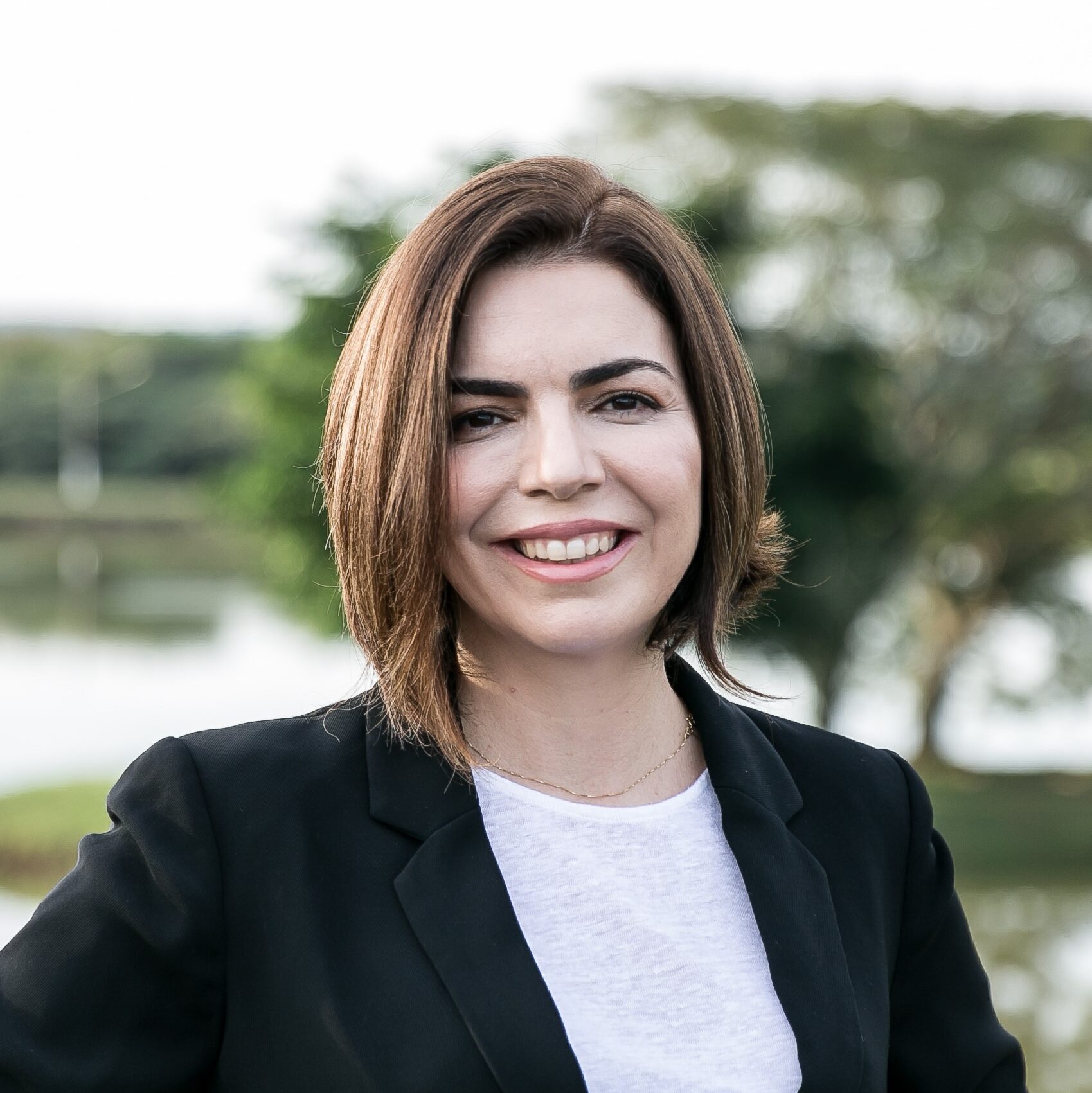
Prof. Vania Zuin Zeidler
Federal University of São Carlos, UFSCar, Brazil
Prof. Vania Zuin Zeidler is a professor at the Federal University of São Carlos (UFSCar, Brazil) and visiting professor at the University of York (UoY, England) and Leuphana University (Germany). She focuses on Green and Sustainable Analytical Chemistry and Green and Sustainable Education. She has received numerous awards and distinctions, including the IUPAC CHEMRAWN VII Prize and the ACS-CEI Award for Incorporating Sustainability in Universities.
Read more
Dr. Sam Adu-Kumi
Environmental Protection Agency, Accra, Ghana
Dr. Sam Adu-Kumi has diverse research interests in environmental fate, human exposure, and health risk assessment of POPs and heavy metals in Ghana. His work focuses on monitoring, sampling, analysis, and risk characterization of human health risks.
Read more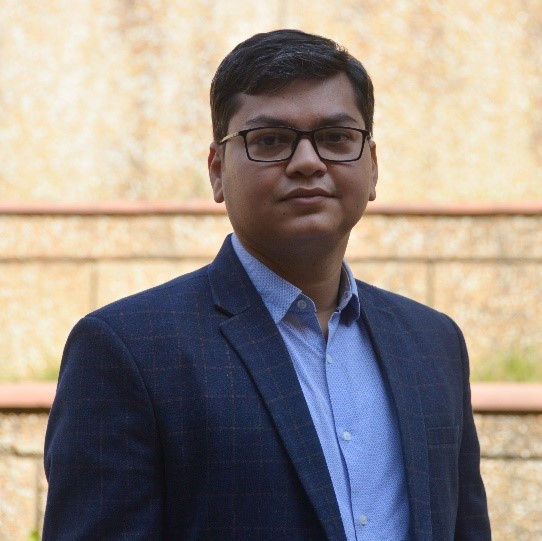
Prof. Raju Kumar Gupta
Indian Institute of Technology Kanpur, India
Prof. Raju Kumar Gupta is currently a Professor at the Department of Chemical Engineering, Indian Institute of Technology Kanpur, India. His current research interests are photocatalysis for water remediation and CO2 capture & conversion to fuels, desalination, perovskite solar cells and energy storage devices based on batteries. Prof. Gupta has been recipient of several fellowships and awards, including DST Inspire Faculty Award, Distinguished Young Alumnus Awards, PK Kelkar Young Faculty Fellowship and Fellowship of the Royal Society of Chemistry. Prof. Gupta is an Editorial Board member of several international journals, including ‘Sustainable Chemistry One World’, ‘Solar Energy’, ‘Scientific Reports’, ‘Journal of Polymer Science’ and ‘Current Opinion in Green and Sustainable Chemistry’.
Read more